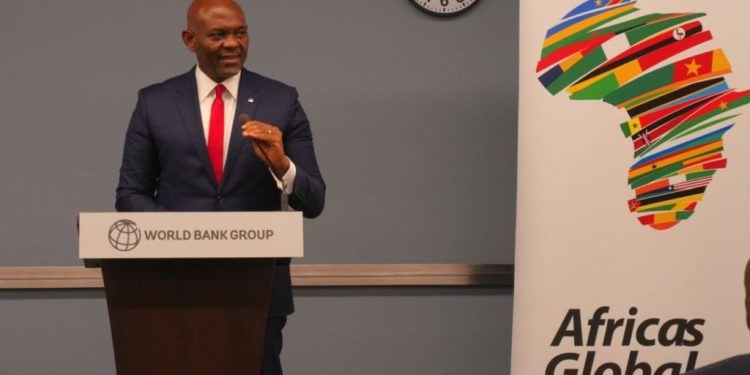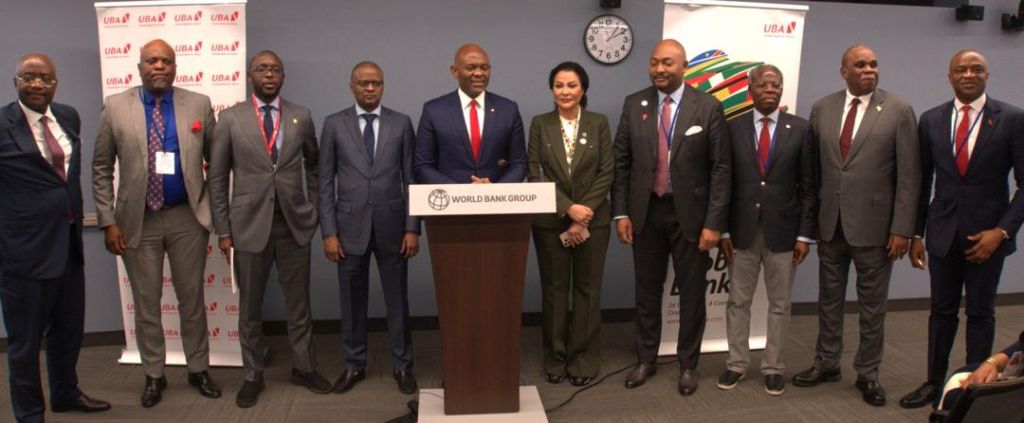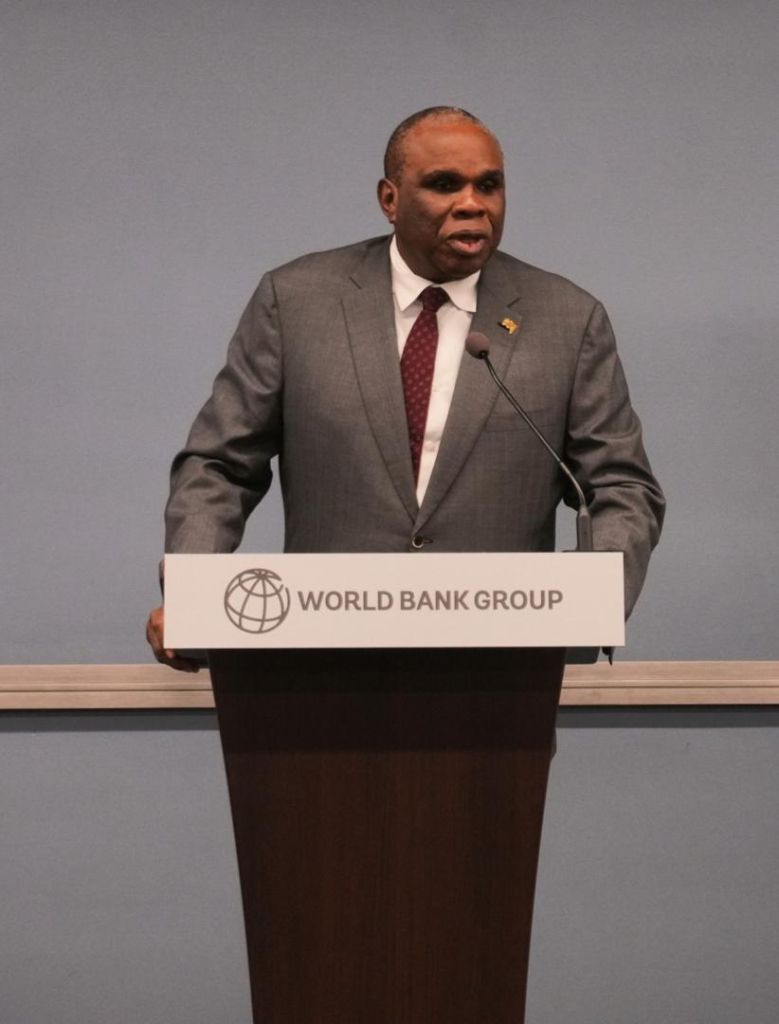- Driving Africa’s Next Growth Frontier: UBA’s White Paper Pushes the Continent from Aid to Investment Powerhouse
At the 2025 IMF/World Bank Annual Meetings in Washington, one voice stood out with quiet audacity, not from a government minister or a Bretton Woods technocrat, but from a banker with a distinctly African vision. United Bank for Africa (UBA) Group Chairman Tony Elumelu unveiled a bold white paper titled “Banking on Africa’s Future: Unlocking Capital and Partnerships for Sustainable Growth”, reframing the conversation about Africa’s economic destiny.
The paper is less a corporate publication than a manifesto, a declaration that Africa’s growth no longer hinges on aid but on mobilising its own $4 trillion in domestic financial assets and leveraging strategic partnerships to accelerate development. It is a message calibrated not only for policymakers and investors but also for the global financial establishment still hesitant about Africa’s readiness to lead its own transformation.
UBA’s white paper lands at a critical juncture for Africa. As global economic headwinds persist, from rising debt costs to slowing trade flows, African nations are recalibrating their growth models toward self-financing, trade integration, and industrialisation. The document argues that the continent holds untapped reservoirs of capital within its commercial banks, pension funds, and insurance pools, estimated at $4 trillion, nearly equivalent to Germany’s GDP.
If effectively mobilised, this domestic capital could reduce Africa’s dependency on foreign aid and external borrowing while deepening continental value chains. UBA’s analysis suggests that integrating this financial base with global partnerships could help bridge Africa’s estimated $100 billion annual infrastructure financing gap.
Mr Elumelu, a long-time proponent of “Africapitalism,” insists the time for dependency is over. “Africa stands at a transformational crossroads, rich in resilience, creativity, and untapped potential,” he declared. “With this whitepaper, UBA champions Africapitalism, empowering our private sector to drive sustainable growth that delivers prosperity and social wealth.”
The timing of the white paper is strategic. Five years after the operationalisation of the African Continental Free Trade Area (AfCFTA), intra-African trade remains under 20%, a figure UBA’s report describes as “an opportunity deficit, not a failure.” By aligning capital flows with the $3.4 trillion AfCFTA market, UBA sees an opportunity to finance regional infrastructure, logistics, and digital integration that will enable small and medium enterprises (SMEs) to scale across borders.
For Ghana, Kenya, Nigeria, and Côte d’Ivoire, economies that anchor regional trade corridors, the implications are profound. A unified African financial architecture could support cross-border payments, de-risk trade transactions, and attract diaspora and sovereign wealth into productive investments. The white paper envisions an Africa where banks like UBA act as continental conduits, facilitating private-sector-led financing of rail, energy, and climate-resilient infrastructure.
Oliver Alawuba, UBA’s Group CEO, underscored this point: “This report redefines development finance, moving from aid dependency to investment highways powered by African innovation. With our deep local knowledge and global reach, UBA is uniquely positioned to unlock capital flows and foster collaborations that transform challenges into opportunities.”
For international investors, the white paper serves as both a call to action and a roadmap. It invites institutional players, from pension funds to sovereign investors, to reconsider their exposure to African assets, not as charity but as growth diversification.
As Mr Elumelu framed it, “To investors across Africa and the globe: join us in mobilising our $4 trillion domestic capital alongside strategic partnerships to bridge opportunities, de-risk investments, and build a self-determined future.”
This narrative aligns with broader debates at the IMF and World Bank about reforming the global financial architecture to make capital flows more equitable. With Africa’s share of global foreign direct investment (FDI) still under 4%, the call to unlock domestic liquidity complements calls for global capital fairness, a synergy between self-reliance and systemic reform.
In Washington, the symbolism was not lost: while many African finance ministers spoke of debt relief, UBA was speaking of investment acceleration. The contrast signals an emerging shift in how Africa engages the world, from recipient to co-architect of its financial future.
UBA’s white paper also ventures into thematic pillars shaping the next decade of African finance, from climate adaptation and green bonds to digital inclusion and fintech innovation. With Africa contributing less than 4% of global emissions yet receiving under 12% of global climate finance, the report advocates for blended financing structures that crowd in private capital for renewable energy, water management, and sustainable agriculture.
Equally, it underscores the digital dividend: fintech and mobile banking are expanding access to credit for millions previously excluded from formal finance. In this landscape, UBA’s digital platforms across 20 African countries and five international markets, including the U.S., UK, France, and UAE which have been positioned as a continental bridge between technology and finance.
Also at its core, the UBA white paper is a reassertion of Mr Elumelu’s “Africapitalism” philosophy, the idea that Africa’s private sector, not foreign aid, will deliver the next wave of transformation. It challenges governments to create enabling environments for investment, improve governance, and leverage financial technology to deepen inclusion.
By rooting economic transformation in African ownership and partnership, UBA places the private sector at the heart of a continental growth strategy. The implications go beyond banking, toward reshaping Africa’s global economic identity.
As Mr Elumelu put it at the launch: “The era of action is upon us. Let us seize it together for Africa’s economic sovereignty.”
UBA’s full white paper, “Banking on Africa’s Future: Unlocking Capital and Partnerships for Sustainable Growth,” is available for download at www.ubagroup.com/white-paper.










